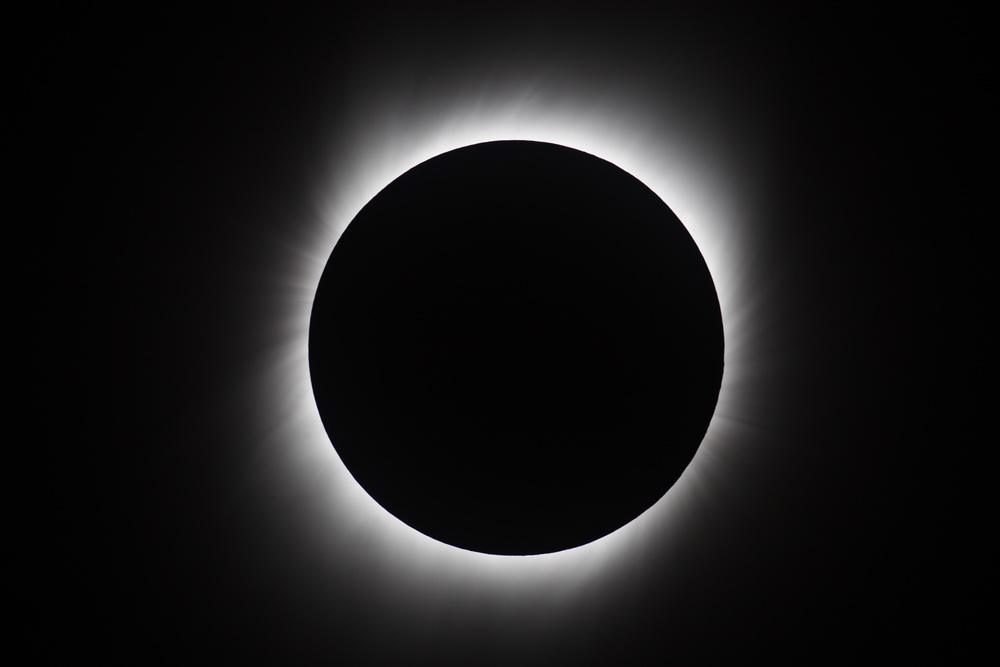(单词翻译:单击)
听力文本
This is Scientific American — 60-Second Science. I'm Steve Mirsky.
"I expected to have this interesting intellectual experience, and instead it was just completely visceral."
Author and journalist David Baron talking about the first time he saw a total solar eclipse, in 1998 in Aruba.
"It just tapped into something very, very deep in my brain. I mean, I really think even though I knew what was going on, the gut reaction was one of absolute horror and at the same time awe. That it just sort of put my whole existence into a whole new perspective, of appreciating just how powerless and puny I am, but at the same time just how marvelous and spectacular the universe is. And so it's both incredibly humbling and also incredibly empowering. I mean, it's this great paradox."
"And that's, I think, what makes it so addictive and why I chase eclipses season and why there are other people who are eclipse junkies and why I think, frankly, after August 21st of this year there will be thousands more people who will find themselves chasing eclipses all over the world. It's just an experience unlike anything else that you just want to have again."

David Baron will be in Jackson Hole, Wyoming, August 21st, to see his sixth total solar eclipse. You can hear my entire half-hour discussion with Baron, available on the Scientific American Web site as a Science Talk podcast. We also talk about his new book American Eclipse: A Nation's Epic Race to Catch the Shadow of the Moon and Win the Glory of the World. It's about a scientifically and socially important eclipse back in 1878.
If you can't make it to the path of totality on August 21st check out the NASA Web site for live coverage. And then visit the Scientific American Web site for our post-eclipse wrap-up. If you will be in the path of totality, I wish you clear skies and a blown mind.
For Scientific American — 60-Second Science Science. I'm Steve Mirsky.
参考译文
这里是科学美国人——60秒科学。我是史蒂夫·米尔斯基。
“我希望经历这种有趣的知识体验,而这完全是发自内心的本能感受。”
这是作家兼记者大卫·巴伦1998年在阿鲁巴第一次看到日全食的感受。
“它深深地印在我的大脑中。就是说,虽然我知道那是日全食,但是我的本能反应却是全然的恐惧,同时也充满敬畏。那好像把我的一切放入了全新的视角,让我知道自己是多么无力和渺小,但同时又让我感受到宇宙有多么奇妙和壮观。可以说,它让我既感到极其谦卑,又感受到无比强大的力量。这是一种伟大的矛盾。”
“我在思考,日全食为何如此有魅力,我为何要追逐日全食季,为什么有人会成为日全食迷,坦白说,我认为在今年8月21日之后,又会有成千上万人在世界各地追逐日全食。这种经历与众不同,让你想再次体验。”
8月21日,大卫·巴伦将在怀俄明州的杰克逊霍尔第六次观看日全食。听众可以登录《科学美国人》官网,在“科学对话”播客上收听我和巴伦长达半小时的完整讨论。我们还谈到了他的新书《美国日食:一个国家追赶月影和赢得世界荣耀的史诗般竞赛》。本书讲述了1878年那场对科学和社会均产生重要影响的日食。
如果您在8月21日不能在日食带上亲眼目睹日全食,可以上美国国家航空航天局(NASA)官网收看直播。然后访问科学美国人官网,浏览我们对日全食进行的后续报道。如果您在日食带上观看日全食,那希望您那里天空晴朗,体验美好经历。
谢谢大家收听科学美国人——60秒科学。我是史蒂夫·米尔斯基。
译文为可可英语翻译,未经授权请勿转载!
重点讲解
重点讲解:
1. even though 即使;尽管;纵然;
例句:Even though I'm quite a reserved person, I like meeting people.
我虽然性格极为内敛,但喜欢和人接触。
2. at the same time 同时;
例句:It was a very strange feeling in retrospect — I was frightened, but excited at the same time.
回想起来那是一种非常奇怪的感觉——我当时既害怕又兴奋。
3. all over 到处;遍及;
例句:We have friends all over the world.
我们的朋友遍天下。
4. check out 了解清楚;核实;查实;
例句:Maybe we ought to go down to the library and check it out.
或许我们应该去趟图书馆,查个明白。


